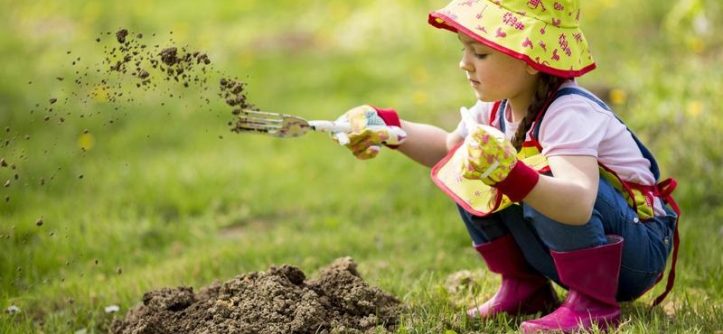Outdoor spaces hold an undeniable allure for people of all ages and backgrounds. From lush gardens to vibrant city parks, these spaces serve a myriad of purposes beyond mere visual appeal. In this article, we will delve into the multifaceted nature of outdoor spaces and unravel the diverse purposes they serve, including their impact on our well-being, health, and sense of community.
The Dynamic Role of Outdoor Spaces in Our Well-being
The Physical Health Aspect
Outdoor spaces provide wonderful opportunities for individuals to engage in physical activities that promote their overall health and fitness. Whether it’s renting an outdoor space rental for jogging, playing sports, or taking leisurely walks, the expansive outdoors provides ample space for people of all ages to exercise and stay active. Regular physical activity in these spaces enhances cardiovascular health, strengthens muscles, and boosts endurance.
The Psychological Well-being Component
Spending time in nature has been proven to have a profoundly positive impact on our mental health. Outdoor spaces act as sanctuaries away from the daily stresses of life, offering a serene and tranquil environment conducive to relaxation and rejuvenation. Numerous studies have illustrated the calming effect of lush green spaces, demonstrating their ability to alleviate symptoms of anxiety and depression.
The Social Well-being Dimension
Outdoor spaces play a pivotal role in fostering social interactions and fostering a sense of community. Parks and recreational areas serve as central meeting points where people from all walks of life can come together, strike up conversations, and build meaningful connections. These spaces nurture a sense of belonging and provide opportunities for individuals to connect with others in their neighborhood, enhancing their social well-being in the process.
Outdoor Spaces: Guardians of Environmental Sustainability
The Preservation of Biodiversity
Outdoor spaces, such as parks and gardens, act as crucial sanctuaries for a diverse range of plant and animal species. They provide vital habitats that support the survival and reproduction of various flora and fauna. By promoting biodiversity, these spaces contribute to the overall health of ecosystems, preserving the delicate balance of nature.
The Improvement of Air Quality
Outdoor spaces play a pivotal role in enhancing air quality, particularly in urban areas. Trees and greenery act as natural air filters, absorbing harmful pollutants and expelling oxygen. Their presence creates a natural buffer against pollution emanating from vehicles and industrial activities, which in turn helps mitigate the adverse effects of pollution on our health.
The Regulation of Climate
Outdoor spaces significantly contribute to climate regulation by acting as natural climate modifiers. Trees and vegetation help regulate temperature and humidity levels in their surroundings. They combat the urban heat island effect, reducing energy consumption associated with cooling systems. By playing their part in climate regulation, outdoor spaces contribute to a more sustainable and eco-friendly environment.
Outdoor Spaces as Engaging Learning Environments
The Medium for Education
Outdoor spaces serve as inspiring platforms for immersive learning experiences for both children and adults. Many educational institutions incorporate outdoor spaces into their curriculum, allowing students to connect with nature and learn about environmental conservation. Outdoor classrooms and nature-based activities promote hands-on learning, fostering a deep understanding and appreciation of the natural world.
The Stimulus for Creativity and Imagination
The allure of outdoor spaces lies in their ability to spark creativity and ignite the imagination. The combination of fresh air, natural surroundings, and open spaces stimulates the mind, encouraging innovative thinking. Artists, writers, and musicians often seek solace in outdoor spaces to find inspiration for their work, as the sensory experience provided by nature fuels their creative endeavors.
The Oasis of Stress Reduction
Spending time in outdoor spaces has a profound effect on reducing stress levels. These spaces offer a temporary escape from the daily hustle and bustle, allowing individuals to relax, unwind, and recharge. The serenity of Nature has the power to calm the mind, improving concentration, productivity, and overall mental well-being.
Conclusion
Outdoor spaces serve as versatile environments that cater to a range of purposes, from advancing our well-being and preserving the environment to facilitating unique learning experiences. They offer far more than just visual appeal, becoming integral to our physical, mental, and social lives. Whether we find solace in the peacefulness of a garden or engage in recreational activities in a local park, outdoor spaces have the remarkable ability to touch our lives in meaningful and transformative ways.
FAQs (Frequently Asked Questions)
- Can outdoor spaces in urban areas be as beneficial as those in rural areas?
Absolutely! Outdoor spaces in urban areas provide an essential connection to nature, offering a much-needed respite from the surrounding concrete jungle. Urban parks and gardens provide a sanctuary for people to relax, exercise, and socialize, promoting their overall well-being. - How can outdoor spaces be made more accessible for individuals with disabilities?
To ensure inclusivity, outdoor spaces should prioritize accessibility. This can include the incorporation of wheelchair-friendly paths, ramps, and accessible seating areas. Designing spaces that cater to the needs of all individuals enables everyone to enjoy the benefits that outdoor spaces offer. - Are there economic benefits associated with outdoor spaces?
Indeed, outdoor spaces can bring about significant economic benefits. Well-maintained parks and natural areas can attract tourists, enhance property values, and contribute to the growth of local businesses. Additionally, outdoor spaces promote physical and mental well-being, indirectly reducing healthcare costs. - How can communities actively participate in the development and maintenance of outdoor spaces?
Communities can engage in the development and maintenance of outdoor spaces by participating in volunteer programs, advocating for green spaces, and collaborating with local authorities. By actively involving themselves in the planning and upkeep of outdoor spaces, community members ensure that these spaces reflect their needs and preferences. - Can indoor spaces replicate the benefits provided by outdoor spaces?
While indoor spaces can offer certain benefits, such as access to exercise facilities or natural light, they often cannot replicate the full range of advantages provided by outdoor spaces. The sights, sounds, and scents of nature found in outdoor spaces create a unique and irreplaceable experience that cannot be fully recreated indoors.






Leave a Reply